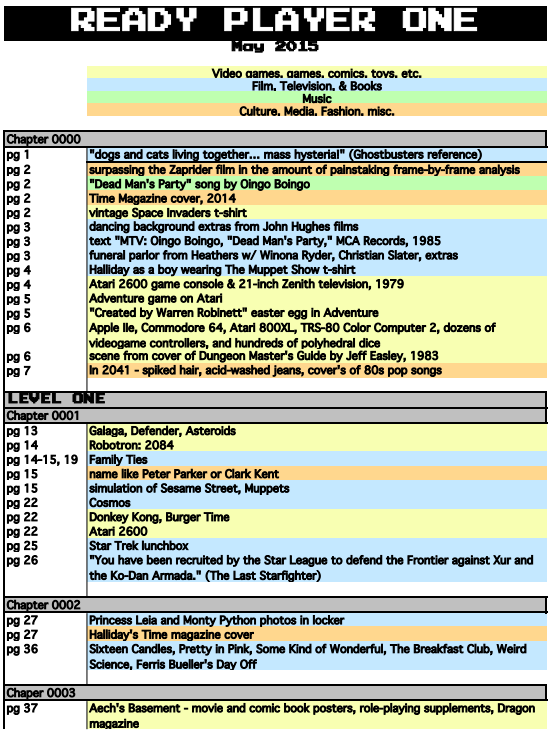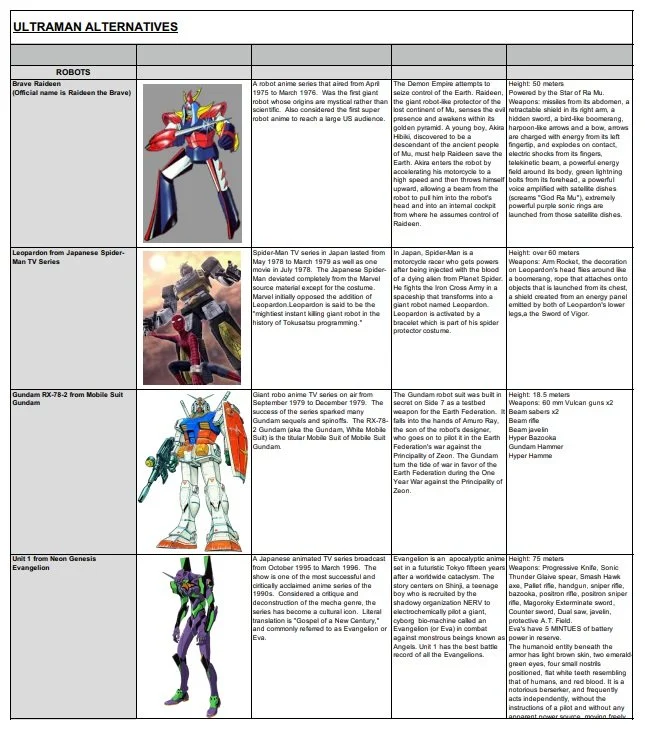Ready Player One & Copyright Clearance
Ready Player One is an American science fiction action film released in 2018 based on the novel of the same name written by Ernest Cline. The film was directed by Steven Spielberg, who was also a co-producer of the film, the screenplay was written by Zac Penn and Ernest Cline, and starred actors Tye Sheridan (Wade Watts, a.k.a. Parzival), Olivia Cooke (Samantha Cook, a.k.a. Art3mis), Ben Mendelsohn (Nolan Sorrento), and Mark Rylance (James Haliday). The movie is set in the year 2045 and most of humanity utilizes the OASIS which is a virtual reality simulation that people used to escape from the real world. A teenage orphan, Wade Watts, finds clues to a contest created by James Halliday, the creator of OASIS, that promises ownership of OASIS to whoever wins. Wade and his allies race to win the contest before an evil corporation, headed by Nolan Sorrento, can (Wikipedia).
Deidre Backs is an independent producer and filmmaker, and was the Special Projects Supervisor for Ready Player One. She was a producer on Fancy Dance, and worked on a number of films including Top Gun: Maverick, Us, Nebraska, and Bridge of Spies. She has worked for years alongside producer Daniel Lupi with multiple notable directors such as Steven Spielberg, Paul Thomas Anderson, and Jordan Peele. She notably received the 2021 Mark Silverman honor as a Sundance Institute Creative Producing Lab fellow, was selected to be a part of the 2022 Women at Sundance/Adobe Fellows, and became a part of the Gotham/Cannes Producer Network Fellowship (IMDb). She is currently a professor at the University of Kansas, teaching Film and Media Studies.
The Clearance Process for Film
“Clearance is the process of securing all of the rights required to distribute a motion picture or television project. This process has two major components: obtaining the rights to utilize protected works, appearances, locations, etc. and ensuring that none of your original work infringes upon the rights of another through comprehensive searches conducted by legal clearance experts” (Film and Television Clearance FAQ).
Ready Player One is a great example of the extensive effort that goes into the clearance process for film and the process for obtaining licenses to include various items in a film, such as characters from other animations, films, video games or even music in the film itself. As the Special Projects Supervisor in Ready Player One, Ms. Backs was responsible for obtaining the licenses for the movie. The clearance process is a critical and necessary step to go through whenever a film is being made.
Under US copyright law, copyright owners have 6 exclusive rights for their work. These rights include the right to reproduce the material, create derivative works of the material, distribute copies of the material, perform the material publicly, display the material publicly, and perform the material publicly by means of digital transmission. The copyright holder can also authorize others to exercise some of these rights via licenses (U.S. Copyright Office). The clearance process is when film producers seek permission from copyright holders to exercise some of these rights. Without this permission, films could violate these exclusive rights. If a film wanted to use a song like Back in Black by AC/DC they would need to get permission from the rights holder to play the song in the film.
Ms. Backs explained the clearance process to us.
Ms. Backs shared with us a portion of her page-by-page evaluation of the Ready Player One book for every reference and use of potentially copyrightable material within. This was then used to see what references that the director and writers want to keep in the film, and then to obtain the necessary licenses.
Art in Film
Artwork in films are some of the most claimed copyrights in films mostly due to how visible they are. Some studios, instead of gaining the license for paintings and other art products in their film, make their own paintings and art products to use in a film. This is why having an art department is so important for a production as this saves so much money on paying for licenses to use in the film. Ms. Backs discussed some of the issues using art in Ready Player One.
Notable Characters in the Film
Ms. Backs obtained licenses to use a variety of characters in Ready Player One, including Spartans from the Halo franchise, Chucky from the movie Chucky, Tracer from the video game Overwatch, and the Iron Giant from the movie Iron Giant. The most memorable for Ms. Backs was the license she obtained for the character Gundam from the Gundam franchise.
Below is the first page of Ms. Backs’ notes listing alternates pitched for Ultraman replacements in the movie.
Music in Film
When requesting permission to use music in a film, the film producer often will need to note how the music is going to be used in the film. Rights holders will want to know in what context their music is being used. There are 2 different licences that must be obtained for music to use in a film. The first is the Synchronization license. This grants the right to synchronize a song or a piece of music with a video. There is also the Master Use license. This grants the right to reproduce a specific recording of a song in your film (ASCAP).
Ms. Backs told us about music licenses in the film, and shared her experience with music licenses.
References
ASCAP. (n.d.). ASCAP’s articles and advice FAQ: How to acquire music for films. How To Acquire Music For Films. https://www.ascap.com/help/career-development/How-To-Acquire-Music-For-Films
The Clearance Lab, LLC. (n.d.). Film and Television Clearance FAQ. https://theclearancelab.com/faq/
IMDb. (n.d.). Deidre backs - biography. https://www.imdb.com/name/nm3079753/bio/?ref_=nm_ov_bio_sm
Wikimedia Foundation. (n.d.). Ready player one (film). Wikipedia. https://en.wikipedia.org/wiki/Ready_Player_One_(film)
U.S. Copyright Office. (n.d.). What is copyright?. What is Copyright? | U.S. Copyright Office. https://www.copyright.gov/what-is-copyright/

